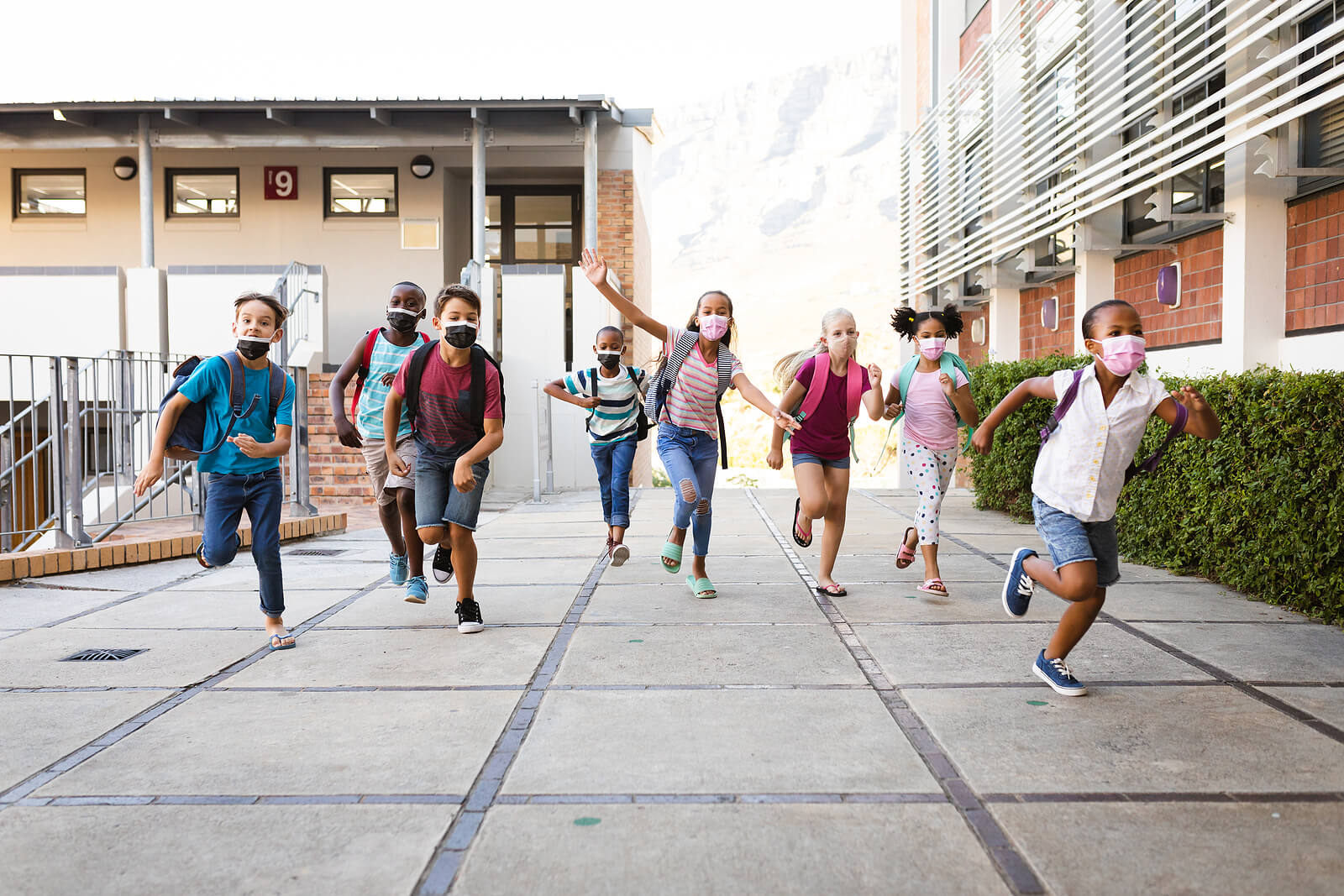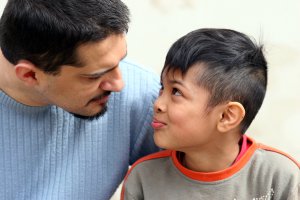Going back to school in normal times is already stressful for kids. But, going back to school amid a global pandemic is even more challenging. COVID-related restrictions have lessened in the state of New Jersey. Yet, the Delta variant presents new fears. What will life look like as people venture out and the schools re-open for the 2021-2022 school year? As parents, we must prepare our kiddos for the changes ahead of them this year. In this blog, we will talk about how to recognize signs of anxiety in your child. This includes helping them cope with the big feelings they may experience. Also, this includes learning to manage your anxiety as their parent. We hope that this will help you and your family begin this new school year on a positive note.
Dealing With the Ups and Downs of the COVID-19 Pandemic as a Family
Everyone seems to have different responses to returning to the real world. Some found that social distancing meant living a more easy-going, laid-back, introverted life. These people may not be as excited to reclaim that sense of normalcy as restrictions are lifted. But, many extroverts struggled with not being able to socialize in the same way they used to. So, they find their newfound freedom exhilarating. It’s important to ask yourself “what category does my child fall under?” Do they prefer to be at home and socializing with a limited amount of people? Or, are they social butterflies who missed the social opportunities school offered?
Ask yourself the following:
-
Does my child usually struggle with transitions?
-
Do they get anxious in new social situations?
-
Were they concerned about the pandemic?
-
Do they have a solid support system available to them at school?
Being prepared to face these challenges and knowing your child’s personality can help you prepare them for going back to school. You can come up with a plan to help them address any potential issues they may face.
Updating Your Child
Next, it’s time to find out how your school district intends on keeping students safe as they go back to school. Then, talk to your child about these plans in a way that they can understand them. For example, if your school is requiring masks, tell your child that! Then, answer any questions they may have; like when they can take it off for example. As plans change, which they inevitably will, you must keep your child updated on what’s going on and what to expect. Don’t let it surprise your child.
Please be thoughtful about your reactions to any policy changes. Your child looks to you for guidance on how to respond. If you express concern, anger, worry, or frustration in front of them, they will pick up on that. This can negatively color their level of concern about the upcoming year. Thus, making the transition back to school very hard. It’s important to stay calm when talking to them about what’s going on. This way, you can set them up for success with the rules that are in place in your district. If you are having trouble, parenting counseling may be able to offer support.
Our counseling clinic is located in Scotch Plains, NJ. Here is some info about how that school district and the neighboring Westfield district plans on keeping kids safe at school:
Parents need to be able to recognize symptoms of anxiety in their children. Some common signs your child may be anxious include:
-
Headaches
-
Stomach aches or GI issues
-
Body aches/tension
-
Trouble sleeping or fatigue
-
Shortness of breath or trembling
-
Irritability
-
Agitation
-
Trouble separating from you
-
Excessive shyness or clinginess
-
Self-criticism
-
Worry
-
Scary thoughts
-
Poor concentration
Addressing Your Child’s COVID Anxiety
If you sense your child is anxious, then knowing how to respond can make all the difference. First, if you respond with heightened anxiety, it’s likely to make the situation worse. Remember anxiety is contagious. So, if you feel your child’s anxiety, take a breath. Focus on centering yourself before addressing their concerns.
After collecting yourself and addressing your fears, help your child identify their anxiety. What they are anxious about? This can be tough for younger kiddos to do. But, one thing you can ask them to do is draw a picture of the scary thing that is on their mind. Then ask them to tell you about what they drew. Labeling the source of their worry can help both of you address it in a proper way.
Next, it’s important to teach them about the role anxiety plays in our lives.
This means educating them about the thing they are feeling anxious about. You can explain that anxiety in smaller doses keeps us safe from harm. However, it becomes a problem when it consumes our thoughts and dictates our behavior. This is when anxiety counseling may prove beneficial. Use this time to talk to them about their fears and offer education and guidance. For example, your child may be worried about wearing a mask around their friends. Explain to them the science behind masking. Describe how it helps keep us safe from getting COVID-19 or spreading germs to other people. Allow them to participate in picking out their masks. Talk to them about ways they can respond to criticism about wearing a mask in a respectful, assertive way.
Anxiety in Introverted Children
If your child is introverted and worried about going back to in-person school or activities, then it is important to support them. But, it’s important not to enable them to avoid situations that are good for them. It may be tempting to let them withdraw from activities or social engagements during the pandemic. But, this prevents them from socializing and forming healthy relationships with their peers. That’s a normal and important part of a child or teen’s development.
Instead, help them ease back into socializing and being away from family. Spend time in a safe way to help your child get back out into the real world. You could do things like summer camps, sports, having playdates, going on a vacation, the list goes on. Doing this gradually with your support shows them that it’s okay to get back out there. But, as long as you’re doing it in a safe way.
Last, if you’re parenting an introvert, give them time to recharge their social battery after socializing or going to school. They’ve likely spent a lot of energy being social and will need some time to themselves afterward. Have a routine to transition from school to home that includes ways to blow off steam or relax.
Begin Anxiety Counseling in Scotch Plains, NJ and Branchburg, NJ
Facing the stress of returning to school during COVID isn’t something you need to do alone. A caring therapist can help you and your child reach peace of mind. We offer support from our Scotch Plains, NJ-based therapy practice. To start anxiety counseling, please follow these steps:
2. Meet with a caring therapist
3. Start overcoming your anxiety!
Other Services Offered at Brave Minds Psychological Services
Anxiety counseling isn’t the only service offered at our Scotch Plains, NJ and Branchburg, NJ-based practice. We provide therapy services for children, teens, and adults including trauma therapy, EMDR, online therapy, and CBT. For children and teens, we offer, online therapy for children, child anxiety treatment, child sexual abuse therapy, teenage therapy, social phobia therapy, OCD, equestrian anxiety, and food allergies. For adults, we also provide adult anxiety counseling, couples counseling, counseling for parents, postpartum counseling, birth trauma therapy, and sexual assault counseling. Contact our practice to learn more about our team, or visit our blog!





